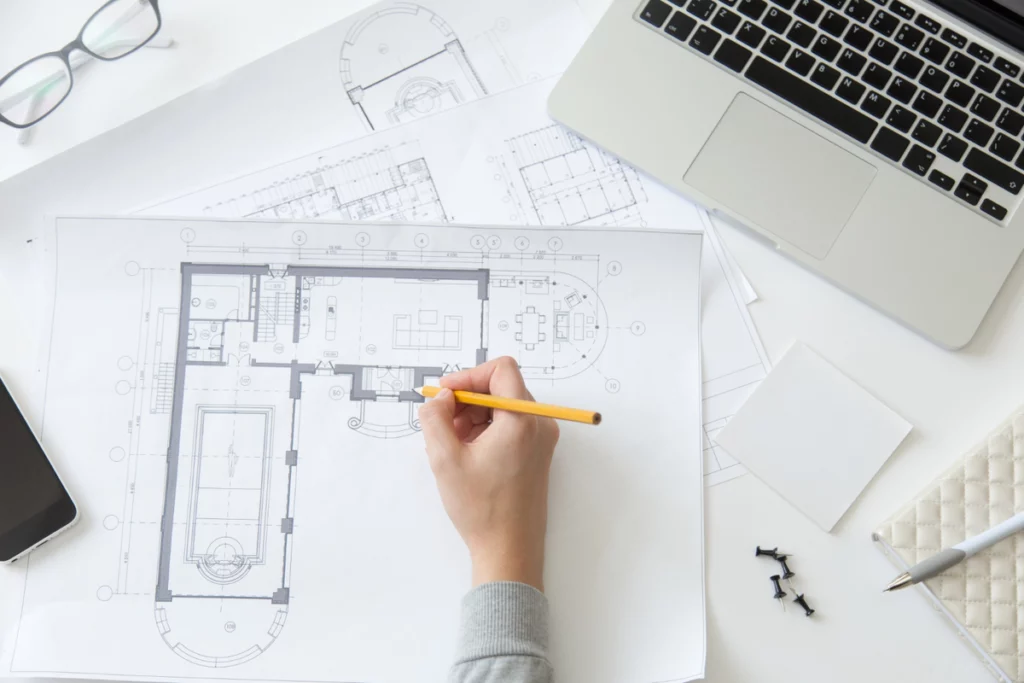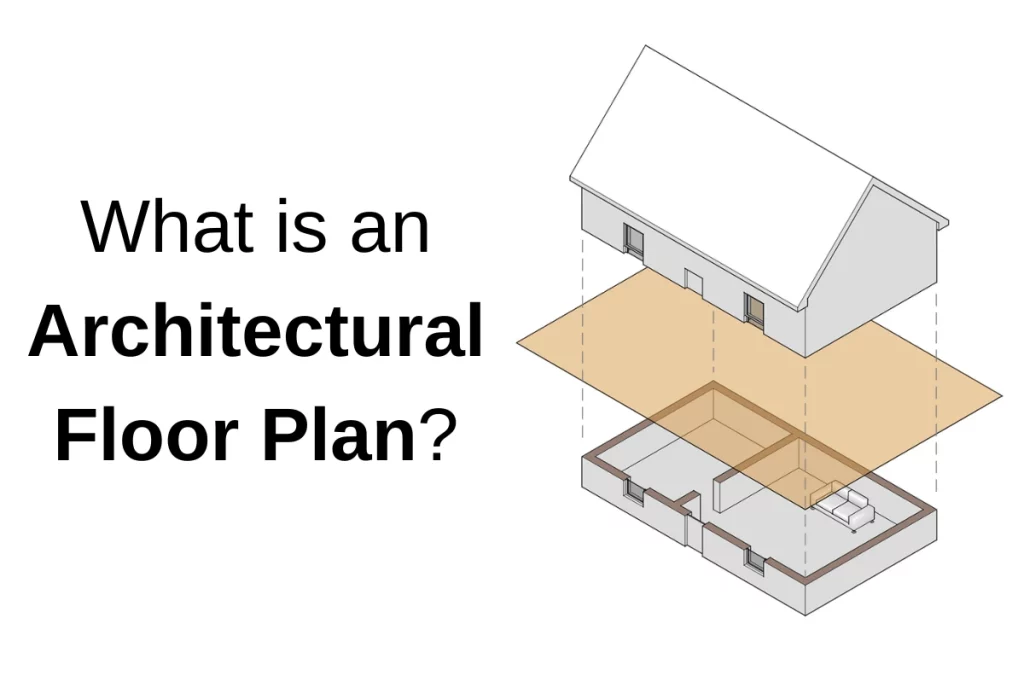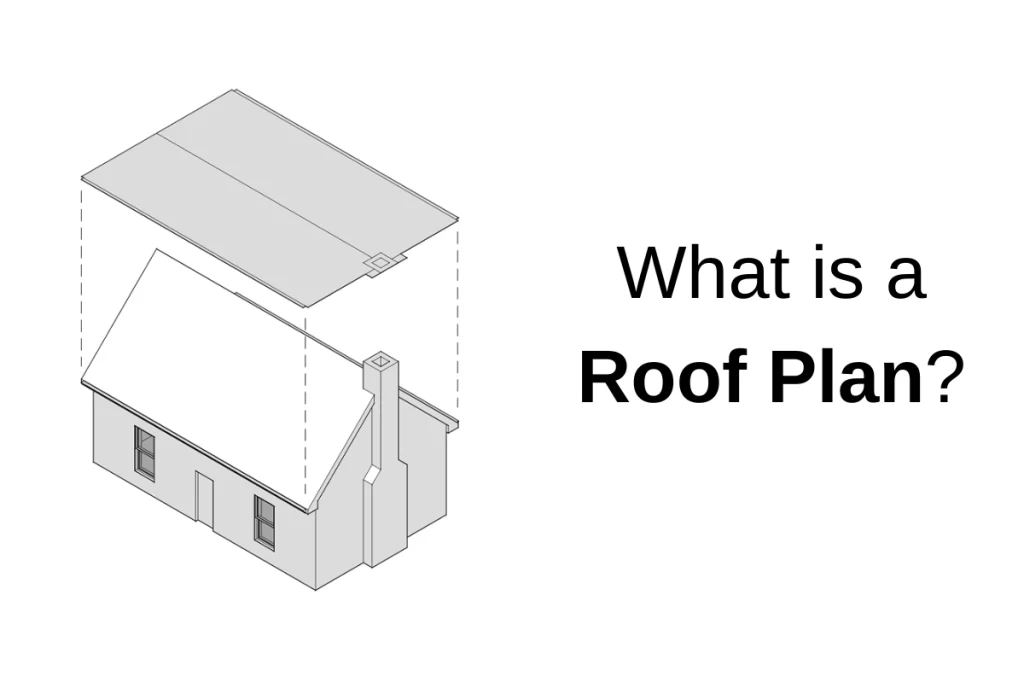In the world of construction and renovation, the expertise of professionals like architects, designers, and draftsmen plays a pivotal role in shaping the buildings we inhabit. These individuals bring diverse skill sets, perspectives, and levels of licensure to the table, catering to a wide range of client needs and project requirements.
Understanding the nuances and differences between these roles is crucial for anyone embarking on a building project, as it can profoundly impact the outcome, cost, and overall experience. Understanding their roles, strengths, and limitations is essential for hiring the most suitable professional to meet your project requirements and preferences. Let’s discuss these three professionals in detail.
Architect
Architects are licensed professionals who are highly skilled and specialize in the art and science of designing buildings and structures. They are responsible for conceptualizing, planning, and assisting in the construction of various architectural projects, ranging from residential homes and commercial buildings to public spaces and urban developments.
Architects possess a deep understanding of architectural principles, construction techniques, building codes, and regulations. They blend creativity with technical expertise to create innovative and functional designs that meet the needs and aspirations of their clients while also considering factors such as aesthetics, sustainability, and cultural context.
Architects typically work closely with clients to understand their requirements, preferences, and budget constraints. They develop design concepts, prepare detailed drawings and specifications, and collaborate with engineers, contractors, and other professionals to ensure that projects are executed to the highest standards.
Pros of Working with an Architect
- Expertise: Architects possess comprehensive knowledge of building codes, regulations, and construction techniques, ensuring that your project benefits from industry best practices and cutting-edge design principles. With their deep understanding of the subject, they can provide valuable insights and recommendations to enhance the quality and functionality of your project.
- Design Innovation: They excel in conceptualizing innovative and functional designs that optimize space, light, and energy efficiency while meeting the client’s needs and preferences.
- Project Management: Architects can be hired to oversee the entire design and construction process, coordinating with contractors, engineers, and other professionals to ensure seamless project execution.
- Legal Compliance: With a thorough understanding of building codes and regulations, architects ensure that projects comply with legal requirements, avoiding potential issues and delays.
Cons of Working with an Architect
- Cost: Hiring an architect can be expensive, as their services typically come with higher fees than other design professionals. Costs can be managed by catering their scope of work to your needs.
- Time: The design process with an architect may take longer due to the detailed planning and documentation required, potentially extending project timelines.
- Overdesign: Some architects may prioritize design “uniqueness” over practicality, leading to overdesigned solutions that exceed the client’s budget or needs.
You should hire an architect if:
- Your project involves unique design challenges, such as integrating innovative technologies, optimizing space efficiency, or navigating site constraints. Architects are trained to tackle multifaceted challenges, envisioning creative solutions that balance functionality, aesthetics, and technical feasibility.
- Your local building authorities require one. In many neighborhoods, the involvement of an architect is not obligatory for residential projects. However, in certain locales, particularly urban settings, the use of an architect or engineer might be necessary for your project plans. Also, architects have likely been through the regulatory process before, enabling them to guide you in the process.
- You’re aspiring to create a truly unique and innovative space that stands out in the architectural landscape. Architects excel in pushing the boundaries of design, exploring novel materials, technologies, and spatial configurations to deliver visionary solutions that captivate the imagination and inspire awe.
- You want to focus on your vision while leaving the logistical details in capable hands. Architects can serve as project leaders throughout design, ensuring better coordination and timely delivery. They can also be hired to visit the construction site as needed to ensure the work is being completed per the drawings and answer questions as they arise. From conceptualization to completion, architects can provide invaluable oversight and guidance to their clients.
- Still unsure? Read this article for more information on if you should hire an architect.
Designer
Designers, sometimes known as architectural designers, are professionals skilled in architectural design but are not licensed architects. They may work independently, in collaboration with licensed architects, or within design-build firms.
Many builders provide home design services, with some having dedicated in-house designers. These design-build firms offer a unified approach, combining architectural design and construction services within their organization. These firms may be led by architects or employ architects as part of their team.
Pros of Working with a Designer
- Creativity: Designers bring creativity and fresh perspectives to the design process, offering innovative solutions that reflect the client’s vision and lifestyle.
- Affordability: Compared to architects, designers may offer more cost-effective design services, making them a suitable option for budget-conscious clients.
- Collaboration: Designers often collaborate closely with clients, listening to their input and incorporating it into the design, fostering a collaborative and personalized approach.
Cons of Working with a Designer
- Limited Legal Authority: Since designers are not licensed architects, they are unable to stamp drawings.
- Variable Quality: The quality of design services designers provide may vary, depending on their experience, training, and expertise. Anyone can call themselves a “designer”.
- Project Management: Designers may not offer comprehensive project management services, requiring clients to coordinate with contractors and other professionals independently.
You should hire a designer if:
- You have a smaller-scale project that doesn’t require the full scope of services provided by licensed architects. Designers are well-suited for smaller-scale projects, such as residential renovations, interior remodels, or boutique commercial spaces. If you have a modest-sized project that requires attention to detail and creative flair, a designer can provide the expertise and support you need to achieve your design goals.
- You still need creative design solutions tailored to your aesthetic preferences and lifestyle. If you have a clear vision for your space but lack the expertise to bring it to life, a designer is your go-to professional. Whether you’re renovating your home, redesigning your office, or revamping a retail space, designers specialize in translating your ideas into tangible design concepts that reflect your style and personality.
- You seek cost-effective design services within a limited budget. Designers offer flexible solutions that cater to a range of budgets, making them an ideal choice for cost-conscious clients. Whether you’re working with a limited budget or seeking cost-effective design options, designers can provide creative solutions that maximize value without compromising on quality.
Draftsman
A draftsman, or draftsperson, is responsible for producing technical drawings and plans, typically based on the design concepts provided by architects or designers. They focus on translating design ideas into detailed and precise construction documents.
Pros of Working with a Draftsman
- Technical Expertise: Draftsmen possess specialized skills in drafting and technical drawing, ensuring accurate representation of design plans and specifications.
- Efficiency: Draftsmen work efficiently to produce detailed construction documents, facilitating smoother communication and coordination between designers, architects, and contractors.
- Cost-Effectiveness: Hiring a draftsman may be more budget-friendly than engaging licensed architects or designers for certain drafting tasks.
Cons of Working with a Draftsman
- Limited Design Input: Draftsmen primarily focus on translating existing design concepts into technical drawings, offering minimal input or creativity in the design process.
- Legal Authority: Like designers, draftsmen cannot stamp drawings.
- Dependency: Draftsmen rely heavily on the design direction provided by architects or designers, potentially limiting their ability to address design issues independently.
- Lack of experience and/or knowledge of construction practices: Without sufficient experience or understanding of construction methods and techniques, draftsmen may produce drawings that lack practicality or fail to adhere to industry standards. This could lead to issues during the construction phase, such as errors in dimensions, inadequate detailing, or misinterpretation of design intent.
You should hire a draftsman if:
- You have a clear design concept developed. A draftsman is the perfect professional to translate these ideas into construction documents. You may have already drafted plans yourself and need someone who can translate your sketches into “hard-lined” drawings.
- You have some understanding of construction and can vet their drawings.
- You want to bring your ideas to other professionals so they can finish the design. You can use these drawings to give to contractors, lumber yards, or an architect to take it to the next level. You may then need to ask your draftsman to make changes accordingly. Be sure to discuss your intentions beforehand.
- You seek cost-effective drafting services. Draftsmen offer specialized drafting services at competitive rates, making them a budget-friendly option for projects of all sizes.
Main Image Source: Image by yanalya on Freepik




